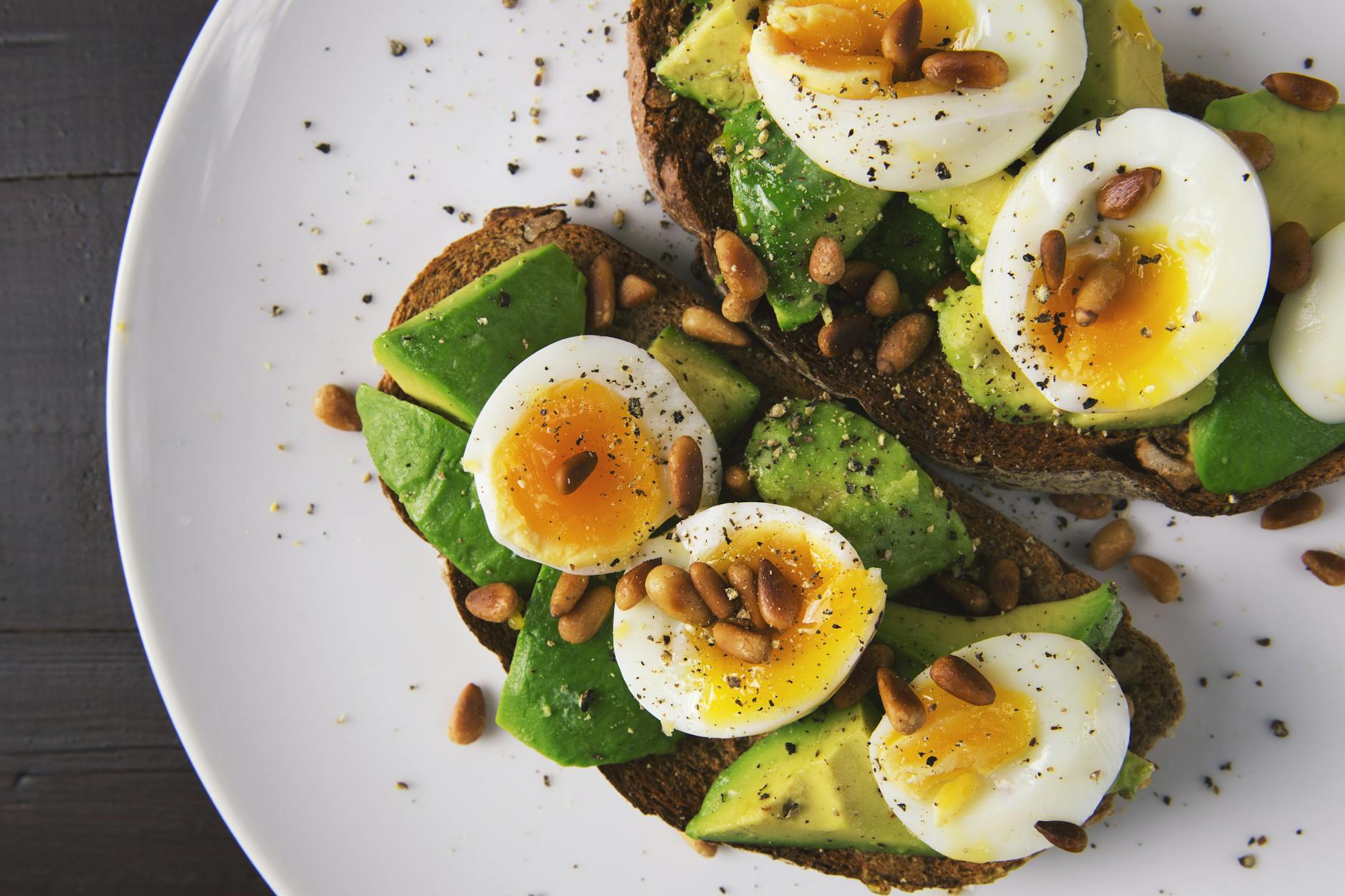You’ve been eating clean, hitting the gym, and watching the scale—but nothing changes. The number stays stuck, leaving you frustrated and questioning every choice. What if the culprit isn’t your diet or workout routine, but something invisible like stress?
When stress lingers, your body clings to fat as if preparing for survival. Cortisol, the stress hormone, signals your cells to store more energy, especially around your midsection. But understanding this link is the first step to breaking the cycle. Let’s explore how stress blocks weight loss—and practical ways to reset your body’s response.
The Science Behind Stress and Weight Gain
You might assume weight loss is all about calories and exercise, but stress plays a bigger role than you think. When stress floods your body, it triggers a hormonal domino effect that influences fat storage, cravings, and even where your body holds onto extra weight. Here’s how it works—and why your stress levels could be the hidden roadblock standing between you and your goals.
How Cortisol Messes with Your Metabolism
Cortisol, your body’s built-in alarm system, does more than just spike during stress—it reshapes how you store energy. When cortisol rises, it signals your cells to hold onto fat, especially around your midsection. Think of it like your body preparing for a crisis: it assumes food might become scarce, so it stockpiles fuel in easy-to-access places.
This isn’t just about extra padding. Cortisol also:
- Slows your metabolism, making it harder to burn calories efficiently.
- Breaks down muscle for energy, which reduces the calories you burn at rest.
- Encourages fat to settle deep in your abdomen, linked to higher health risks.
The result? Even if you’re eating well, chronic stress can keep fat stubbornly in place.
Stress Eating and Cravings: A Vicious Cycle
Ever noticed how stress makes you crave salty chips or sugary snacks? That’s not willpower failing—it’s biology. Stress hijacks your brain’s reward centers, making comfort food feel like a necessity.
Here’s what happens:
- Emotional hunger takes over: Stress dulls your brain’s ability to recognize fullness, leading to mindless eating.
- Sugar cravings spike: Cortisol and blood sugar imbalances create a rollercoaster, pushing you toward quick energy fixes.
- Habit loops form: Repeated stress eating trains your brain to reach for snacks as a coping mechanism.
Breaking this cycle starts with recognizing it. Your cravings aren’t random; they’re a response to stress chemicals shouting for relief.
Signs Stress Is Sabotaging Your Weight Loss
Stress doesn’t just mess with your mood—it can quietly derail your weight loss efforts. Your body sends signals when stress is in control, but most people miss them. Recognizing these red flags helps you take action before stress stalls your progress.
Unexplained Weight Plateaus
You’re doing everything right. The workouts are consistent, meals are balanced, but the scale won’t budge. Instead of doubting your efforts, consider stress as the hidden anchor keeping you stuck.
Chronic stress floods your system with cortisol, which:
A photo shows a man seated at a desk, papers scattering as he buries his face in his hands. His posture screams defeat—one many know too well when stress takes over.
Photo by Nicola Barts
- Slows fat burning: Cortisol prioritizes storing energy rather than using it, like a panic-stricken survival mode.
- Triggers water retention: Elevated cortisol increases sodium retention, masking fat loss with extra water weight.
- Reduces workout recovery: Stressed muscles repair slower, weakening your ability to build metabolism-boosting lean tissue.
Notice a stubborn plateau? Track stress levels alongside food and exercise—they might be the missing piece.
Feeling Hungry All the Time
Stress hunger isn’t normal hunger. It’s a gnawing, impatient craving that doesn’t fade after eating. Your brain, wired by stress chemicals, screams for instant comfort.
Watch for these clues that stress is driving your appetite:
- Sudden sugar or salt cravings: Stress hijacks blood sugar regulation, making you crave quick-energy junk food.
- Eating past fullness: That “I’m stuffed but still scrolling snack photos” feeling is often stress-induced dopamine chasing.
- No true satisfaction: Even after a meal, stress keeps your brain searching for more, leaving you unsettled.
Your body isn’t failing you—it’s reacting to stress the only way it knows how. The fix starts with spotting the difference between real hunger and stress hunger.
How to Reduce Stress for Better Weight Loss
Stress clings to your body like a thick fog, slowing everything down—including your ability to shed weight. The good news? You can clear the fog with simple, science-backed habits. These aren’t quick fixes but lifestyle shifts that calm your nervous system and help your body let go of stored fat.

Photo by Elina Fairytale
Prioritize Sleep for Lower Cortisol
Poor sleep and stress feed each other in a loop. Less sleep means higher cortisol, and higher cortisol makes it harder to sleep. To break the cycle:
- Set a consistent bedtime: Your body thrives on routine. Going to bed and waking at the same time trains your internal clock for deeper rest.
- Avoid screens before bed: Blue light tricks your brain into staying alert. Try reading a book instead.
- Keep your room cool and dark: A slight drop in temperature signals your body it’s time to rest.
Think of sleep as your body’s nightly reset button. Press it regularly, and cortisol levels drop, making weight loss easier.
Mindfulness and Meditation to Calm Your Mind
Your brain can’t tell the difference between a real threat and a stressful thought. Meditation teaches it to pause before reacting.
Start small:
- Breathe for five minutes: Sit quietly and focus on your inhale and exhale. When your mind wanders, gently bring it back.
- Try a body scan: Slowly tune into each part of your body, releasing tension from head to toe.
- Use apps or guided sessions: Free tools like YouTube or Insight Timer make meditation easy for beginners.
Mindfulness isn’t about emptying your mind. It’s about noticing stress without letting it steer your choices.
Move Your Body the Right Way
Exercise should relieve stress, not add to it. Intense workouts can spike cortisol when you’re already stressed. Instead:
- Walk in nature: A 20-minute stroll lowers cortisol more effectively than pushing through a grueling gym session.
- Dance or stretch: Joyful movement signals safety to your nervous system, easing stress’s grip.
- Lift weights moderately: Strength training helps, but keep sessions under an hour to avoid overloading your system.
Your body craves movement that feels good, not punishing. Listen to it, and weight loss follows naturally.

Photo by Yan Krukau
These habits don’t just lower stress—they rebuild your relationship with your body. When stress eases, fat storage loosens its hold, and progress begins.
Foods That Fight Stress and Belly Fat
What you eat doesn’t just fill your stomach—it changes how your body handles stress and stores fat. Certain foods act like natural stress relievers, dialing down cortisol while keeping hunger in check. Others help trim stubborn belly fat by balancing hormones and reducing inflammation.
Here’s how to eat for less stress and a flatter stomach, without restrictive diets or bland meals.
Magnesium-Rich Foods for Relaxation
Magnesium is your nervous system’s quiet ally. It calms racing thoughts, loosens tense muscles, and helps block cortisol overload. Low magnesium levels? That’s when stress feels overwhelming and cravings kick in.
These foods are magnesium powerhouses:
- Dark leafy greens: Spinach, Swiss chard, and kale pack magnesium plus fiber to stabilize blood sugar.
- Pumpkin seeds: A handful delivers nearly half your daily magnesium—sprinkle them on yogurt or salads.
- Dark chocolate (70% or higher): Two squares satisfy sweet cravings while lowering stress hormones.
Quick meal idea: Toss spinach with quinoa, roasted chickpeas, and a drizzle of tahini for a stress-busting bowl.

Photo by Mareefe
Healthy Fats That Keep You Full
Fat doesn’t make you fat—the right kinds actually help you lose it. Healthy fats slow digestion, crush afternoon energy crashes, and tell your brain you’re satisfied. They’re also key for balancing hormones linked to belly fat storage.
Focus on these:
- Avocados: Creamy and rich in monounsaturated fats that reduce cortisol spikes.
- Wild-caught salmon: Loaded with omega-3s to fight inflammation and stress-related fat storage.
- Extra virgin olive oil: Drizzle it on veggies—its polyphenols help lower stress-induced cravings.
Quick meal idea: Mash avocado on whole-grain toast, add smoked salmon, and top with chili flakes for a 5-minute stress-fighting breakfast.

Photo by Malidate Van
Stress eating doesn’t have to sabotage your goals. These foods work with your body, not against it, to ease tension and shrink waistlines. No willpower required—just real food that does the heavy lifting for you.
Conclusion
Stress doesn’t just weigh on your mind—it clings to your waistline, turning weight loss into an uphill battle. Cortisol hijacks your metabolism, cravings sabotage your willpower, and sleepless nights keep fat locked in place. But the power to shift this cycle is in your hands.
Start small. Prioritize sleep, move in ways that feel good, and fuel your body with foods that fight stress, not fuel it. Each tiny step adds up, quieting cortisol and waking up your body’s natural ability to shed weight.
Your journey isn’t about perfection. It’s about progress. Today, choose one stress-busting habit and let it ripple through every part of your life. The scale will follow. Ready to break free? Your body’s waiting.








